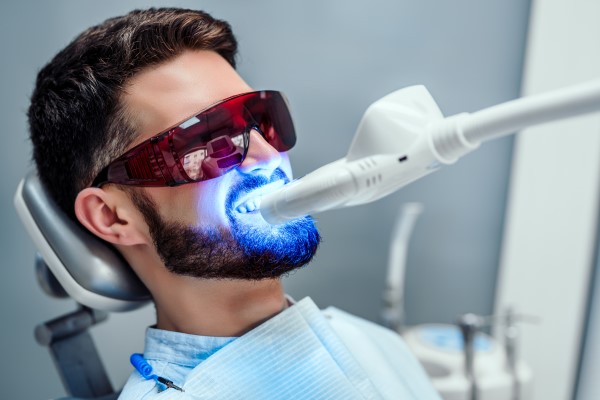A bright white smile is often seen as healthy, confident, and attractive. Over time, our teeth can lose their shine due to stains, aging, and habits. Cosmetic teeth whitening offers a popular and effective way to bring back that brilliant smile. Whether you’re getting ready for a special event or want to feel better about yourself, teeth whitening can make a big difference.
In this blog, we will discuss what cosmetic teeth whitening is, its benefits, different types, and how to keep your results.
What is Cosmetic Teeth Whitening?
Teeth whitening is a simple dental treatment that lightens the color of your teeth by removing stains and discoloration. This process uses bleaching agents like hydrogen peroxide or carbamide peroxide to break down stains into smaller pieces, making your teeth look whiter.
It’s important to remember that teeth whitening only works on natural teeth. It does not work on dental restorations, such as crowns, veneers, or fillings.
Benefits of Cosmetic Teeth Whitening
- Improved Appearance: A bright, white smile enhances your appearance. It makes you look healthier and younger.
- Boosted Confidence: Having whiter teeth can help you feel confident about smiling in social and work situations.
- Non-Invasive: Teeth whitening is a simple and painless procedure, easier than many other cosmetic dental treatments.
- Customizable Options: For teeth whitening, you can choose from professional in-office treatments or at-home kits. There are options to fit every lifestyle and budget.
- Quick Results: Many treatments show clear improvements after just one session.
Common Causes of Teeth Staining
Before exploring teeth whitening options, it’s important to know why teeth can become discolored. Here are some common reasons:
- Food and Drinks: Coffee, tea, red wine, and dark-colored foods can stain your enamel.
- Tobacco Use: Smoking or chewing tobacco causes stubborn stains.
- Aging: As we age, enamel wears down, revealing the yellow dentin beneath.
- Poor Oral Hygiene: Inadequate brushing and flossing lead to plaque buildup and discoloration.
- Medications: Certain antibiotics, antihistamines, and high blood pressure medications can cause teeth discoloration.
- Genetics: Some people naturally have a slightly yellow or duller enamel color.
Types of Cosmetic Teeth Whitening
You have several options to get a brighter smile. These include professional treatments and over-the-counter solutions. Here’s a simple overview of the most popular methods:
- In-Office Whitening: In-office whitening, done by a dentist, provides the quickest and most noticeable results. The dentist applies a strong bleaching agent to your teeth, usually with a special light or laser to boost the effect. This method can brighten your teeth by several shades in just one visit.
- Pros: Fast results, professional supervision, customized treatment.
- Cons: Higher cost compared to at-home options.
- At-Home Whitening Kits: Dentists often give you custom-fitted trays and strong whitening gel to use at home. These kits work better than store-bought options and let you whiten your teeth when it’s convenient for you.
- Pros: Affordable, convenient, professional-grade results.
- Cons: Takes longer than in-office treatments.
- Over-the-Counter Whitening Products: Whitening toothpaste, strips, and gels are easy to find and affordable. However, they are not as strong as professional treatments and may take weeks to show noticeable results.
- Pros: Affordable, widely available.
- Cons: Less effective, potential for uneven whitening.
- Natural Remedies: Some people use natural methods like baking soda or activated charcoal to help whiten their teeth. These methods are generally safe, but they may not have strong effects and could harm tooth enamel with too much use.
- Pros: Low cost, easily available.
- Cons: Limited effectiveness, not always dentist-recommended.
Is Teeth Whitening Safe?
Teeth whitening can be safe and effective when done properly. However, using whitening products incorrectly or overuse can cause:
- Tooth Sensitivity
- Gum irritation
- Enamel damage
To reduce risks, always follow the instructions that come with your whitening product. Talk to your dentist before starting any treatment.
Tips for Maintaining Your White Smile
To prolong your whitening results, adopt these habits:
- Avoid Staining Foods and Drinks: Cut down on coffee, tea, red wine, and other drinks that cause stains.
- Practice Good Oral Hygiene: Brush and floss your teeth regularly to prevent plaque. Use a whitening toothpaste to help keep your teeth bright.
- Use a Straw: Drinking through a straw can help keep staining beverages away from your teeth.
- Quit Smoking: Quitting tobacco will stop further discoloration.
- Schedule Regular Dental Cleanings: Regular cleanings remove stains and help keep your teeth healthy.
Who is a Good Candidate for Teeth Whitening?
Teeth whitening can help many people, but it isn’t right for everyone. It works best for those with healthy teeth and gums. If you have a lot of dental work, serious enamel damage, or stains from medication, your dentist might suggest other options like veneers.
Final Thoughts
Cosmetic Teeth whitening can greatly improve your smile and boost your confidence. You can choose between professional treatments at a dental office or at-home kits. To get the best results, be consistent and take care of your teeth. Always talk to your dentist to find out which whitening method is best for you.
With the right strategy, you can have a brighter smile that makes a great impression. So why wait? Start working towards your dream smile today!
This blog provides easy-to-follow facts, expert tips, and helpful advice on teeth whitening.


